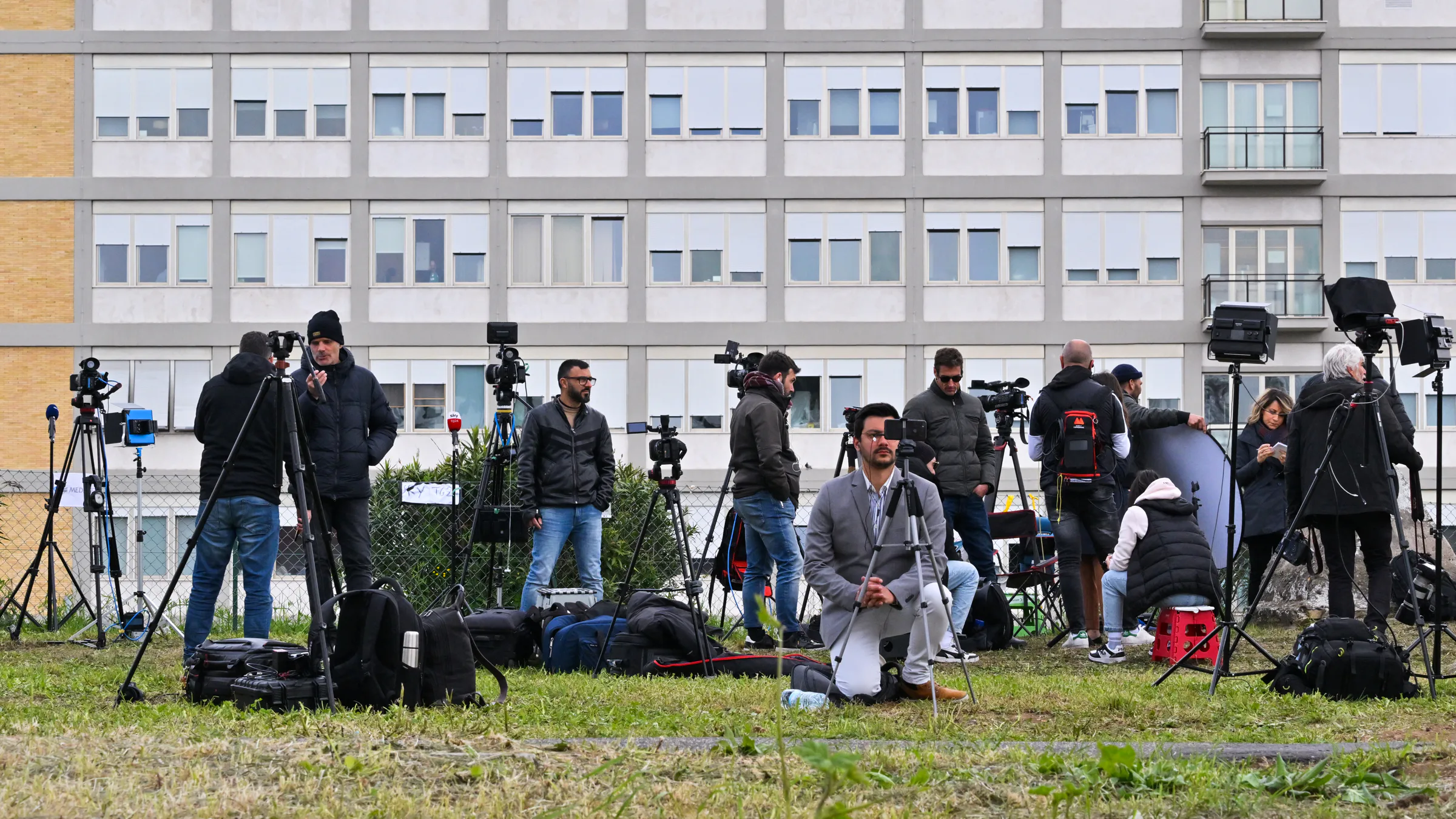Media freedom within the European Union is facing a deepening crisis, as rising authoritarianism continues to erode press independence. “Media freedom, the first line of defense against authoritarianism, is crumbling across Europe,” said the Civil Liberties Union for Europe on Tuesday in its fourth annual Media Freedom Report just days ahead of World Press Freedom Day on 3 May.
The report, produced in collaboration with 43 human rights organisations from 21 EU countries, finds that governments are increasingly influencing the media by allocating public funds to government-friendly outlets and using public service media as communication tools. Journalists face widespread threats and violence, female journalists are targeted disproportionately and opaque media ownership structures limit pluralism. Moreover, access to public information is often denied by public officials, further restricting transparency.
Diverging trends in media freedom
The report highlights that changes in media freedom are both indicators and drivers of the broader rule of law situation. Central and Eastern Europe illustrate this sharply. Slovakia is now following Hungary’s “autocratic manual,” increasing the risk of a fully captured media landscape. Meanwhile, Poland and Slovenia are making notable efforts to restore media independence and reduce political interference.
These developments come as the EU prepares to fully implement the European Media Freedom Act (EMFA) in August 2025. However, the report warns that many Member States are “not ready to uphold new EU media rules” meant to safeguard press freedom.
State interference and lack of pluralism
In Hungary, public media remain fully under government control, acting as a mouthpiece for the authorities. Legislative changes in Slovakia have further dismantled safeguards ensuring media independence. Even in less problematic countries such as Greece, Croatia, Malta, Bulgaria and Italy, opaque financing and political control over management create “vulnerabilities to political influence,” the report finds.
Across the EU, governments continued to exert influence through the unclear allocation of state advertising funds, favouring pro-government outlets in countries like Bulgaria, Croatia, Greece, Hungary, Malta, Slovenia and Spain. High media ownership concentration also remains a major concern, particularly in Croatia, France, Hungary, Malta, the Netherlands, Slovenia, Spain and Sweden. While the EMFA requires publicly accessible databases to ensure ownership transparency, many Member States have yet to establish compliant systems.
Threats against journalists and access to information
Journalists across Europe face growing dangers. Female journalists were disproportionately harassed in 2024, particularly in Bulgaria, Italy, Slovakia and Sweden. The use of spyware against journalists, especially those exiled from Russia or Belarus, remains a significant concern.
Violence against journalists, specifically during demonstrations linked to regional conflicts such as the Israel-Palestinian crisis, was recorded in France, Germany, Greece, Hungary and Spain and was often perpetrated by law enforcement.
Access to public information also remains problematic. Journalists in Bulgaria, Germany, Greece, Malta, the Netherlands and Spain often encounter resistance or outright refusals when submitting Freedom of Information requests.
Strategic lawsuits and Belgium’s SLAPP problem
Abusive lawsuits intended to silence critical reporting, known as Strategic Lawsuits Against Public Participation (SLAPPs), remain a pervasive threat. Belgium, along with countries like Bulgaria, Croatia, France, Germany, Greece, Hungary, Italy, Lithuania, the Netherlands, Slovakia and Slovenia continue to struggle with this issue.
In Belgium, there is still no effective legislation protecting victims of SLAPPs, nor has there been any progress toward implementing the EU’s new Anti-SLAPP directive. The report highlights the case of a journalist from the French-language political magazine Wilfried, who faced legal action from the municipal council of Andenne after writing a profile of a former mayor. The Walloon government ultimately intervened to cancel the legal procedure twice.
Media freedom at a crossroads
Jonathan Day, lead editor of the report and an advocacy officer at the Civil Liberties Union for Europe, warned: “Media freedom and pluralism are in a deepening crisis in the EU. Despite a few instances of progress in 2024, in most countries, the negative trends we’ve observed in previous years continue. This isn’t a surprise. Governments’ efforts to weaken the rule of law and democratic institutions almost always start by seeking to control their country’s media landscape.”
Day underscored that the successful enforcement of the European Media Freedom Act will be crucial, saying, “The findings of this report should put the European Commission on high alert: how successfully this law is enforced may be make-or-break for media freedom in some Member States.”










